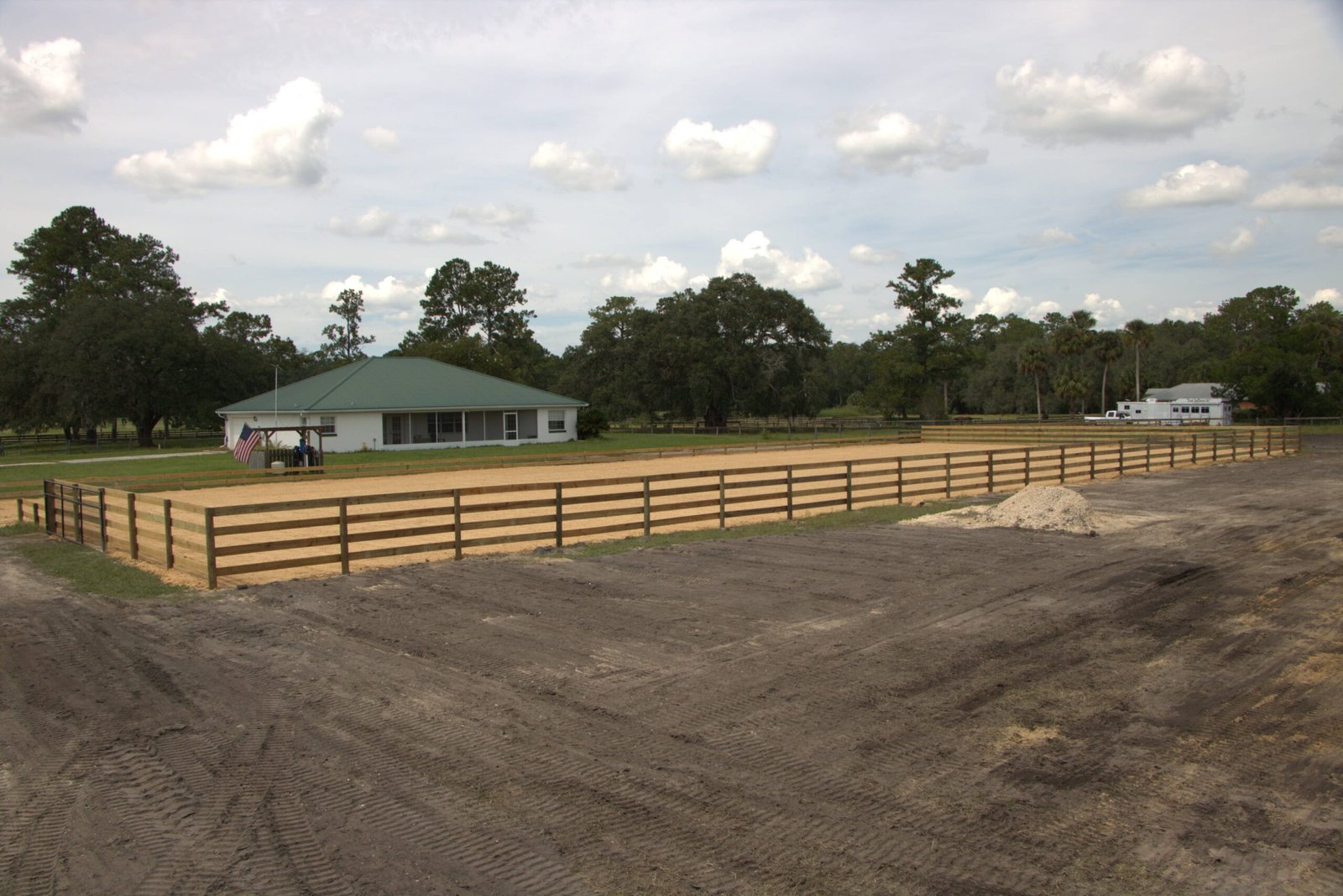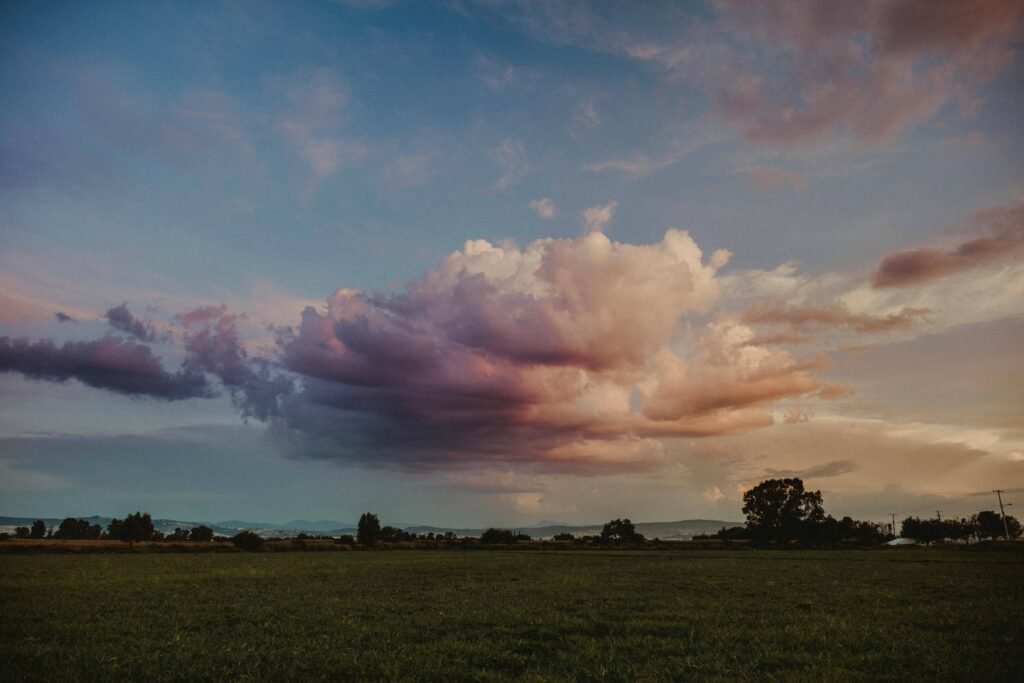
Smart Fencing Investments: Durable Options for North Central FloridaA Critical Investment: Choosing the Right Fencing in North Central Florida
Choosing the right fencing in North Central Floridais a critical investment in your home’s security, privacy, and long-term value. In our unique climate—from the rolling hills of Ocala to the vibrant communities of Gainesville—a fence must do more than just define a property line. It must withstand a relentless combination of intense sun, high humidity, torrential rain, and seasonal hurricane-force winds.
An improperly chosen or installed fence will quickly fall victim to rot, pests, and storm damage, turning a major investment into a recurring problem. A fence is not just a barrier; it’s a core component of your property’s infrastructure, and it needs to be engineered for the specific challenges of our region.
At Bell’s Outdoor Services, we specialize in installing fences built to conquer these challenges. With deep local expertise in Florida’s soil, weather patterns, and building codes, we deliver solutions that last. This guide will help you compare the best materials for our climate and understand why professional installation is the key to a long-lasting, valuable, and reliable fence.
The Florida Factor: Battling Sun, Rain, Wind, and Pests
A fence in our region faces a four-pronged attack from the environment that demands careful material selection and expert installation.
- Intense Sun (UV Rays):Year-round UV radiation causes materials like unprotected wood and low-quality vinyl to fade, crack, and turn brittle over time.
- High Humidity and Rain:Our subtropical humidity and frequent downpours create the perfect breeding ground for mold, mildew, and fungus, which leads directly to rot in unprotected wood fences.
- Destructive Pests:This warm, damp climate is a paradise for wood-destroying pests like termites, which are rampant in our region and can quickly compromise a fence’s structural integrity.
- Hurricane-Force Winds:Seasonal hurricanes bring powerful winds that can turn solid privacy fences into giant sails, tearing them apart if they aren’t built with specific storm-resistant techniques.
A Head-to-Head Comparison: The Best Fencing Materials for Our Climate
When it comes to fencing in North Central Florida, not all materials are created equal. Here’s a look at the top contenders and how they perform in our demanding environment.
Vinyl Fencing: The Low-Maintenance Champion
For homeowners who prioritize long-term value and minimal upkeep, vinyl (PVC) fencing is often the smartest choice. Modern, high-quality vinyl is specifically engineered to handle hot, humid climates with ease.
- Pros:Vinyl is virtually maintenance-free, never needing to be painted, stained, or sealed. It is impervious to moisture, meaning it won’t rot, warp, or swell in Florida’s humidity, and it offers no food source for termites. High-quality, 100% virgin vinyl is manufactured with UV inhibitors like titanium dioxide that act as a built-in sunscreen, preventing fading and ensuring a lifespan of 20-30 years or more. Lighter colors also stay cool to the touch, even in direct sun.
- Cons:Vinyl typically has a higher upfront cost compared to wood, though this is often offset by the lack of maintenance expenses over its lifetime. It can also crack if struck by a heavy, direct impact from storm debris or landscaping equipment.
Wood Fencing: The Timeless, Natural Classic
Wood offers a warm, traditional beauty that is highly customizable. However, choosing wood fencing in North Central Floridameans committing to an ongoing maintenance schedule to protect it from the elements.
- Pros:Wood provides a classic charm that blends seamlessly with natural landscapes. It can be easily customized with different stains and paints, and the initial installation cost is generally lower than vinyl.
- Cons:Wood is highly vulnerable to Florida’s climate. It requires sealing or painting every few years to protect against moisture that causes rot and UV rays that cause warping. It is also a primary food source for termites. For the best performance, pressure-treated pine is a cost-effective and durable option, while naturally resistant woods like cedar and cypress offer superior longevity but at a higher cost.
Chain Link Fencing: The Practical, Storm-Resistant Workhorse
When durability, security, and storm performance are the top priorities, chain link is an unbeatable option, especially for large properties or commercial applications.
- Pros:Chain link’s greatest advantage is its hurricane resistance. The open-weave design allows high winds to pass directly through, drastically reducing the risk of damage compared to solid fences. Modern galvanized or vinyl-coated chain link is also extremely durable, rust-resistant, and requires virtually no maintenance. It remains the most cost-effective fencing option available.
- Cons:The primary drawback is a lack of privacy. However, this can be easily addressed by adding privacy slats after installation, offering a simple way to increase seclusion.
Why Expert Installation is Non-Negotiable for Fencing in North Central Florida
Even the best materials will fail if not installed correctly. Professional installation is the single most important factor in ensuring your fence reaches its maximum lifespan and protects your investment, especially when facing hurricane season.
An expert team understands the specific techniques required for storm-ready fencing in North Central Florida:
- Deeper Post Setting:A hurricane-resistant installation involves setting posts at least three feet deep in concrete. This creates a solid foundation that resists the immense uplift forces generated by high winds and prevents the fence from being uprooted.
- Proper Fasteners:Professionals use high-quality, rust-resistant screws to secure fence panels and pickets. Nails can easily pull loose under the pressure of high winds, causing the fence to fall apart when it’s needed most.
- Reinforced Posts:For vinyl privacy fences, metal post inserts are crucial for providing the rigidity needed to withstand hurricane-force winds. Standard, hollow vinyl posts are simply not strong enough on their own.
- Code Compliance:A professional team understands local building codes, protecting you from legal issues and ensuring your fence is compliant. For example, in Marion County, a permit is typically required for fences over 6 feet tall or for any fence enclosing a swimming pool. Navigating these local regulations is a key part of a professional service. For more information on statewide guidelines, you can review the law.
These professional standards are the difference between a fence that stands firm for decades and one that becomes dangerous debris in the next major storm.
The Bell’s Outdoor Services Promise: Experience and Expertise
At Bell’s Outdoor Services, we have built our reputation on the principles that we use. We don’t just build fences; we build lasting solutions tailored to the unique demands of North Central Florida.
- Experience & Expertise:As a local company, we have years of hands-on experience with the specific challenges of our region. We understand Florida’s soil, its weather, and its pests. Our team is equipped with advanced machinery for every stage of the job, from forestry mulching to final installation.
- Authoritativeness:We are a fully licensed and insured company that understands the best practices for every fence type. We handle the entire process, from site prep to final inspection, ensuring every project is code-compliant and built to the highest standards.
- Trustworthiness:Our mission is to build lasting relationships by providing reliable service, honest pricing, and results you can count on. We stand behind our work with a quality guarantee, using only premium, American-made materials designed to withstand Florida’s climate.
Frequently Asked Questions (FAQs)
What is the best type of wood for a fence in Florida?Pressure-treated pine is a cost-effective and durable choice for Florida’s climate. For superior natural resistance to rot and insects, cedar and cypress are excellent, albeit more expensive, options.
How do you make a fence hurricane-resistant?Hurricane resistance comes from proper installation techniques. This includes setting posts at least three feet deep in concrete, using screws instead of nails, reinforcing vinyl posts with metal inserts, and choosing styles like chain link or shadowbox vinyl that allow wind to pass through.
Do I need a permit for my fence in North Central Florida?Permit requirements vary by county and city. For example, Marion County generally requires a permit for fences over six feet tall. It’s always best to check with your local building department. As part of our service, we assist with the permitting process to ensure your project is fully compliant.
How long does a vinyl fence last in Florida?A high-quality, professionally installed vinyl fence can last 20 to 30 years or more in Florida. The key is using 100% virgin vinyl with UV inhibitors to prevent fading and brittleness from the intense sun.
Do you clear the fence line before installation?Yes. We are a full-service company and can handle all necessary site preparation, including professional service to clear the fence line of trees, brush, and debris, ensuring a clean and straightforward installation.
Ready to invest in a fence that’s built for the realities of North Central Florida? Contact us today for a free, no-obligation consultation and quote.


